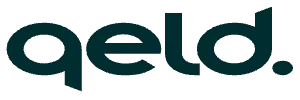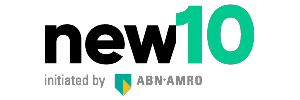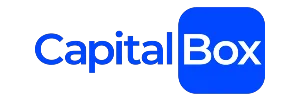€100,000 Loan for your business
€100,000 Business Loan Netherlands
Secure €100,000 in funding for expansion, assets, or hiring
Compare top Dutch lenders with flexible repayment terms
Learn what documents, turnover, and credit score you need

Recommended

Amount
€ 5000 – 250.000
Term
6-36 months
Interest rate
Varies
Verified Company
Non-committal application
Apply in 5 minutes
Example: Loan amount €40,000. Loan term 24 months. Interest rate 1.3% per month. Weekly payment €504.62. Total repayment €52,480. Repayment per week €504.62. Fixed interest 0.5% + premium surcharge 0.8%.

Amount
€ 5000 – 500.000
Term
3-24 months
Interest rate
1.0-2.3%
Verified Company
Fully English Site
In your account within 24 hours
Costs are based on your company’s risk profile. The one-time closing costs of 2% (minimum €650) are not included.

Amount
€ 1000 – 500.000
Term
1-18 months
Interest rate
Individual
Verified Company
Apply in 1 min
Payment within 24 hours

Amount
€ 1000 – 50.000
Term
1-36 months
Interest rate
2,4 %
Verified Company
5-star reviews
Quote same day
Example: Loan amount €19,000. Loan term 26 months. Interest rate 2.2%. Monthly payment €967.38. Interest & costs €236.61. Repayment per month €730.77. Total repayment €25,151.95.

Amount
€ 20.000 – 1.000.000
Term
3-60 months
Interest rate
3.8-12%
Verified Company
Customized offer within 15 minutes
Payment within 24 hours

Amount
€ 5.000 – 500.000
Term
12-60 months
Interest rate
3,0 %
Verified Company
Apply in 1 min
Payment within 24 hours
Example: Loan amount €200,000. Loan term 36 months. Interest rate 3.0%. Monthly payment €8,414.25. Interest & costs €2,500.00. Repayment per month €5,914.25. Total repayment €302,912.95.
A €100,000 business loan isn’t just funding, it’s leverage. For growth-stage companies in the Netherlands, this amount can finance major expansion, acquire inventory at scale, onboard staff, or invest in automation. But accessing this level of capital requires more than just a basic application. Lenders expect financial stability, solid turnover, and a clearly defined investment plan.
We show you what it takes to qualify, how interest and repayment terms vary, and which Dutch lenders offer the most competitive €100,000 loan options for ambitious businesses.
Is €100,000 the Right Loan Size for Your Business?
A €100,000 business loan is designed for companies with concrete plans and measurable growth potential. It’s commonly used for high-impact initiatives: expanding into new markets, purchasing commercial property, investing in machinery, or scaling production capacity. Unlike microloans or short-term cash injections, this funding level supports strategic, long-term decisions.
But more money means more responsibility. Before applying, assess whether your business can service the monthly repayments without risking operational stability. Consider your average monthly revenue, cash reserves, and projected return on investment. If your business generates consistent turnover; typically €150,000 to €500,000+ per year, and has a clear use case for the funds, €100,000 may be the right amount to unlock your next growth phase.
Loan Types Suitable for €100,000 Financing
Lenders categorize a €100,000 business loan as a mid-size commercial loan, opening access to a broader set of financing products. Below are the most relevant loan types for Dutch businesses seeking this amount:
1. Bank Term Loans
Traditional banks offer secured or unsecured loans at competitive rates for established businesses. These loans typically come with fixed monthly payments and long repayment terms—ideal for financing capital expenditures or structured growth.
2. Government-Backed SME Loans
Programs like those supported by Qredits or regional development funds provide €100,000 loans with favorable terms, often including coaching or flexible repayment structures. These are especially suited for entrepreneurs lacking collateral but with a strong plan.
3. Online Business Lenders
Fintech platforms such as Funding Circle or New10 offer fast access to €100,000 with digital applications and rapid approvals. Rates are higher than banks, but documentation requirements are lighter, and the process is streamlined.
4. Peer-to-Peer (P2P) Lending Platforms
P2P models allow investors to finance your loan directly. If your business case is strong and well presented, you may secure €100,000 at competitive rates. Processing times can vary based on investor interest.
5. Asset-Based or Equipment Loans
If the funds will be used for purchasing machinery, vehicles, or inventory, lenders may offer asset-backed loans where the asset itself serves as collateral. These loans often come with lower interest rates and structured repayments.
Choosing the right loan type depends on your business’s age, revenue, credit strength, and the purpose of the loan. Structured comparison is essential to match the product with your growth objective.
Eligibility Requirements
Securing a €100,000 business loan requires stronger financials and a more established profile than smaller loans. Lenders want proof that your business can handle the debt, maintain cash flow, and deliver stable returns. Below are the key eligibility criteria you must typically meet.
Eligibility checklist:
- Registered Dutch business (KvK)
- Minimum 1–2 years of operating history
- Annual turnover of at least €150,000
- Strong, verifiable cash flow
- Positive credit history (business and/or personal)
- Clear loan purpose with supporting financials
- Dutch business bank account
Registered Dutch Business (KvK)
You must be officially registered with the Kamer van Koophandel (KvK). Most lenders require your business to operate under a valid KvK number and be based in the Netherlands.
Minimum Operating History
A minimum of 12–24 months in business is usually required. This demonstrates market traction and operational reliability. Startups without revenue history are rarely approved at this level.
Annual Turnover of €150,000+
A six-figure loan requires matching revenue. Most lenders want to see at least €150,000–€500,000 in annual turnover. High and consistent revenue improves your loan terms.
Strong, Verifiable Cash Flow
Monthly cash flow must support repayments. Expect lenders to analyze income vs. expenses and look for buffer capacity in your financials.
Positive Credit History
Your credit rating—both personal and business—is closely examined. Missed payments, defaults, or high outstanding debt can reduce your chance of approval or increase your interest rate.
Clear Loan Purpose
You’ll need a clear breakdown of how the €100,000 will be used, including projected impact on revenue or efficiency. Business plans, budgets, or investment forecasts are often required.
Dutch Business Bank Account
Having an active Dutch business bank account is essential for loan disbursement and financial verification. Most lenders won’t accept private or foreign accounts.
Documents Required
For a €100,000 loan, lenders expect full financial transparency. Documentation requirements are stricter than for smaller amounts, like a €50,000 loan, and incomplete files can delay or block approval. Below is the standard document set most Dutch lenders require.
Document checklist:
- KvK registration extract
- Annual financial statements (last 2 years)
- Business bank statements (last 6–12 months)
- Loan purpose statement or investment plan
- Tax filings (income tax, BTW)
- Valid ID of owner and/or UBOs
- Business plan (for newer companies or risk-based lending)
KvK Registration Extract
This confirms your business is legally registered in the Netherlands. It must be up to date and include full business structure and activities.
Annual Financial Statements
Most lenders request full-year financials for the past two years: income statement (P&L), balance sheet, and cash flow overview. These documents are critical in assessing profitability and debt capacity.
Business Bank Statements
6 to 12 months of bank statements provide real-time insight into cash flow patterns, revenue cycles, and expense behavior. Lenders use this to validate financial stability.
Loan Purpose or Investment Plan
You must clearly explain how the €100,000 will be used. Break it down into categories (e.g., equipment, marketing, salaries) with projected ROI or impact on business growth.
Tax Filings
Up-to-date tax filings (income tax and VAT) are often required to prove fiscal compliance. Missing or overdue taxes can flag risk and delay approval.
Valid ID of Owner/UBOs
Lenders require government-issued identification for the business owner(s) or ultimate beneficial owner(s). For companies with multiple stakeholders, ID from all relevant parties may be needed.
Business Plan
Especially if your company is under 3 years old or has fluctuating revenue, a strong business plan can support your application. It should include market analysis, financial forecasts, and risk mitigation strategies.
Tip: Submitting complete, well-prepared documents up front can significantly speed up approval and improve your loan terms.
How to Apply for a €100,000 Business Loan
Applying for a €100,000 loan in the Netherlands requires preparation, precision, and the right lender match. At this funding level, both traditional banks and alternative lenders conduct thorough risk assessments—so a structured approach is essential.
Step-by-Step Application Process
- Define your financing objective
Know exactly why you need €100,000. Break down the amount and link it to specific business goals, equipment, expansion, working capital, etc. - Evaluate lenders and loan types
Compare banks, fintechs, and government-backed providers. Assess interest rates, loan terms, collateral demands, and approval times. - Verify eligibility
Ensure your business meets basic criteria: turnover, credit score, age, registration, and documentation. Use pre-check tools if available. - Prepare financial documents
Collect everything before you apply: KvK extract, bank statements, annual reports, tax returns, and your loan purpose or business plan. - Submit your application
Fill in the online or paper application. Input all requested data accurately and upload documents. Mistakes or omissions delay the process. - Lender assessment
The lender reviews your financials, credit history, and risk profile. Additional questions or document requests are common at this stage. - Receive loan offer
If approved, you’ll get a formal offer with interest rate, repayment schedule, fees, and legal terms. Review carefully before signing. - Sign and receive funds
Once the contract is signed, funds are typically released within 2–5 business days, depending on the lender.
A strong application isn’t just about data; it’s about clarity. The more clearly you demonstrate the loan’s purpose and repayment ability, the higher your chances of approval.
Interest Rates and Repayment Terms
A €100,000 loan typically qualifies for more favorable interest rates and longer repayment periods than smaller loans. Lenders view this amount as a mid-size commercial facility, which often comes with structured terms and risk-based pricing. The exact rate and term you receive depend on your creditworthiness, collateral, and loan type.
Typical Interest Rates (Annual Percentage Rate – APR)
| Lender Type | Interest Rate (p.a.) |
|---|---|
| Traditional Banks | 3.5% – 5.5% |
| Fintech / Online Lenders | 5.9% – 8.5% |
| Government-Backed Loans | 2.0% – 5.0% |
| Asset-Based Loans | 3.0% – 6.0% |
Typical Loan Terms
| Loan Product | Repayment Term |
|---|---|
| Unsecured Business Loan | 2 to 5 years |
| Secured Business Loan | 3 to 10 years |
| Equipment/Asset Loan | 2 to 7 years |
| Government SME Loan | Up to 10 years |
- Secured loans tend to offer longer repayment and lower rates, but require assets as collateral.
- Unsecured loans come with higher interest but faster processing and less paperwork.
- Government-backed programs may include coaching or grace periods and offer more flexibility.
- Most repayment structures are monthly with fixed installments, but some lenders offer flexible repayment based on turnover.
When comparing offers, always look at the effective APR, including fees and optional insurances, to understand the full cost of borrowing.
Cost Breakdown Example
To understand the full financial impact of a €100,000 loan, it’s essential to look at how interest rate and loan term affect monthly payments and total repayment. Below are three realistic scenarios for Dutch business loans.
Example of Repayment
| Loan Term | Interest Rate (p.a.) | Monthly Payment | Total Interest Paid | Total Repayment |
|---|---|---|---|---|
| 36 months | 6.0% | €3,042 | €9,512 | €109,512 |
| 60 months | 7.0% | €1,980 | €18,800 | €118,800 |
| 84 months | 5.5% | €1,426 | €19,784 | €119,784 |
- 36 months at 6.0%
Suitable for companies with strong cash flow wanting to repay quickly. Higher monthly payments, but less total interest. - 60 months at 7.0%
Balanced option. Spreads payments while keeping total cost moderate. Works well for mid-term investments. - 84 months at 5.5%
Long-term option for large investments or slower ROI projects. Lowest monthly burden, but highest total repayment.
These examples assume fixed-rate loans with equal monthly installments. Actual terms may vary based on lender policies and your financial profile. Use this framework to compare real offers and evaluate affordability before committing.
FAQ
€100,000 Business Loan in the Netherlands
Generally no. Most lenders require at least 12–24 months of trading history and stable revenue. Startups may qualify only if backed by strong collateral or government-supported programs.
Often yes. Banks typically require security, such as equipment, vehicles, or personal guarantees. Some fintech lenders may offer unsecured loans but at higher interest rates.
Typical rates range from 3.5% to 8.5% per annum, depending on loan type, collateral, credit score, and repayment term.
Banks may take 1–2 weeks, while online lenders often approve within 24–72 hours if documents are complete and risk is acceptable.
Some lenders allow early repayment with no fee, while others apply a fixed penalty or charge interest on the remaining balance. Always check the contract.
Repayment terms usually range from 3 to 10 years. Asset-based or government loans may allow longer periods.
Lenders will assess average monthly turnover and may require additional documentation or offer flexible repayment schedules if income varies seasonally.
Yes, especially for larger loan amounts. A strong plan that outlines loan usage, projected ROI, and financial forecasts increases your approval chances.
